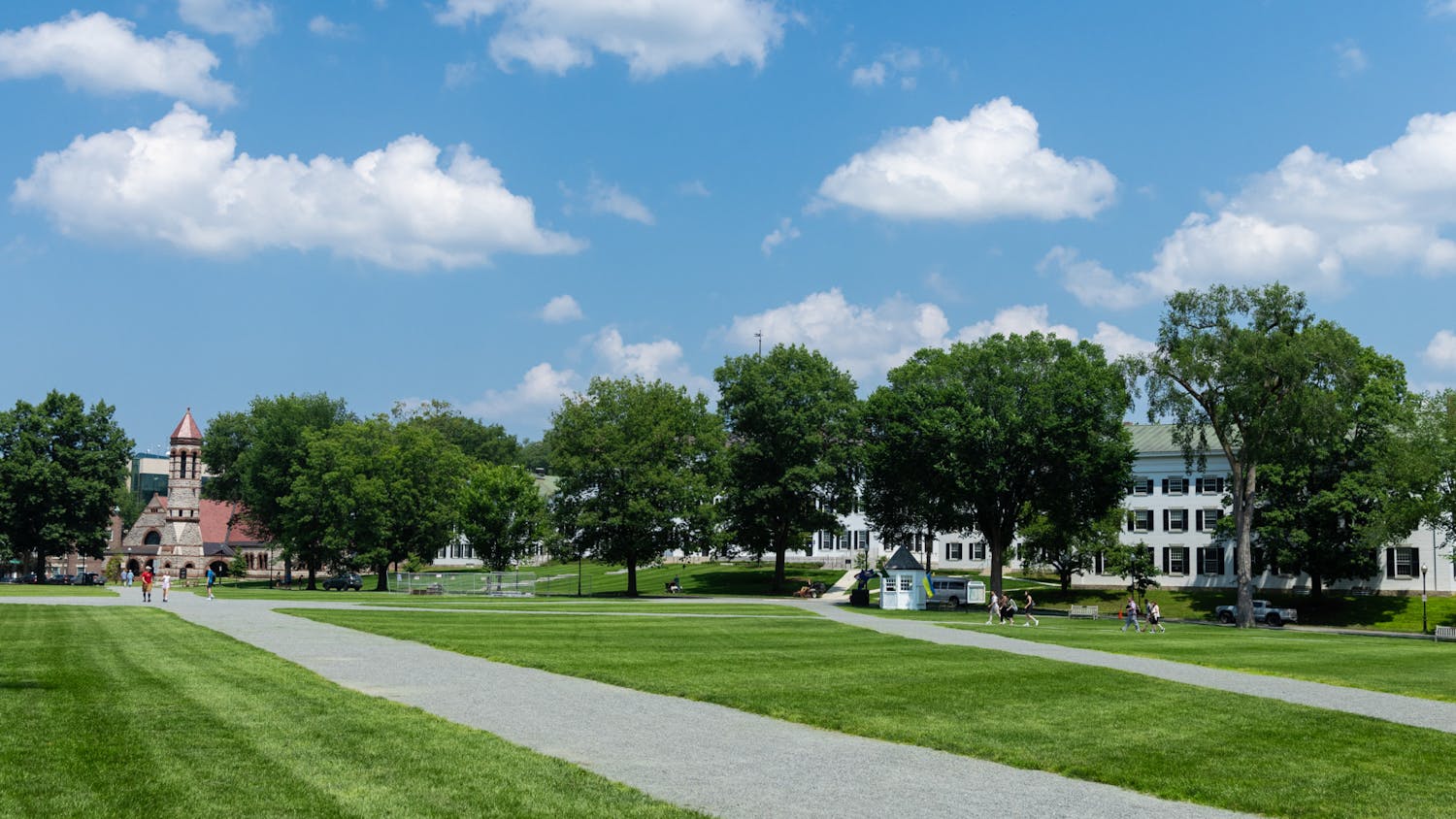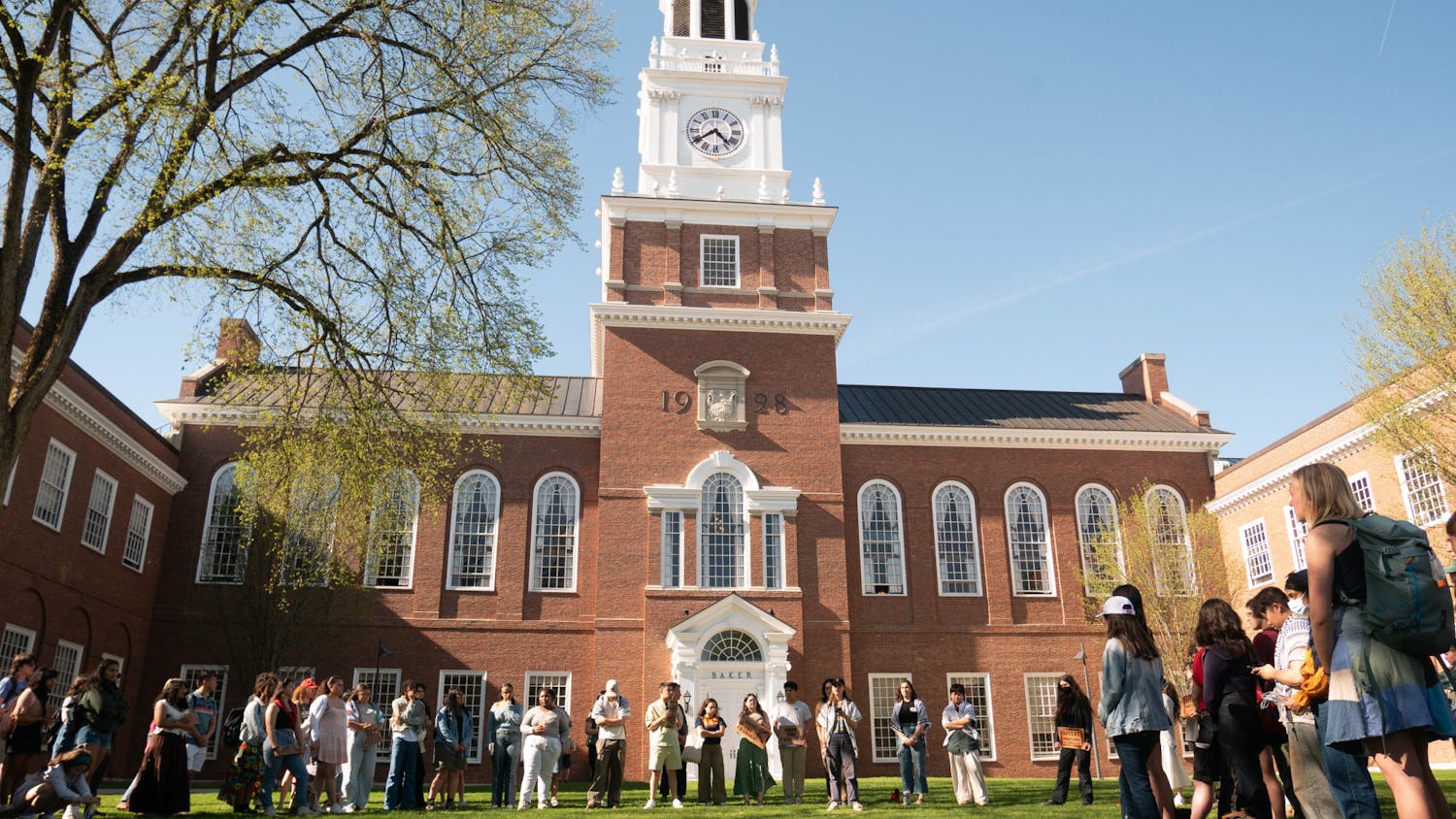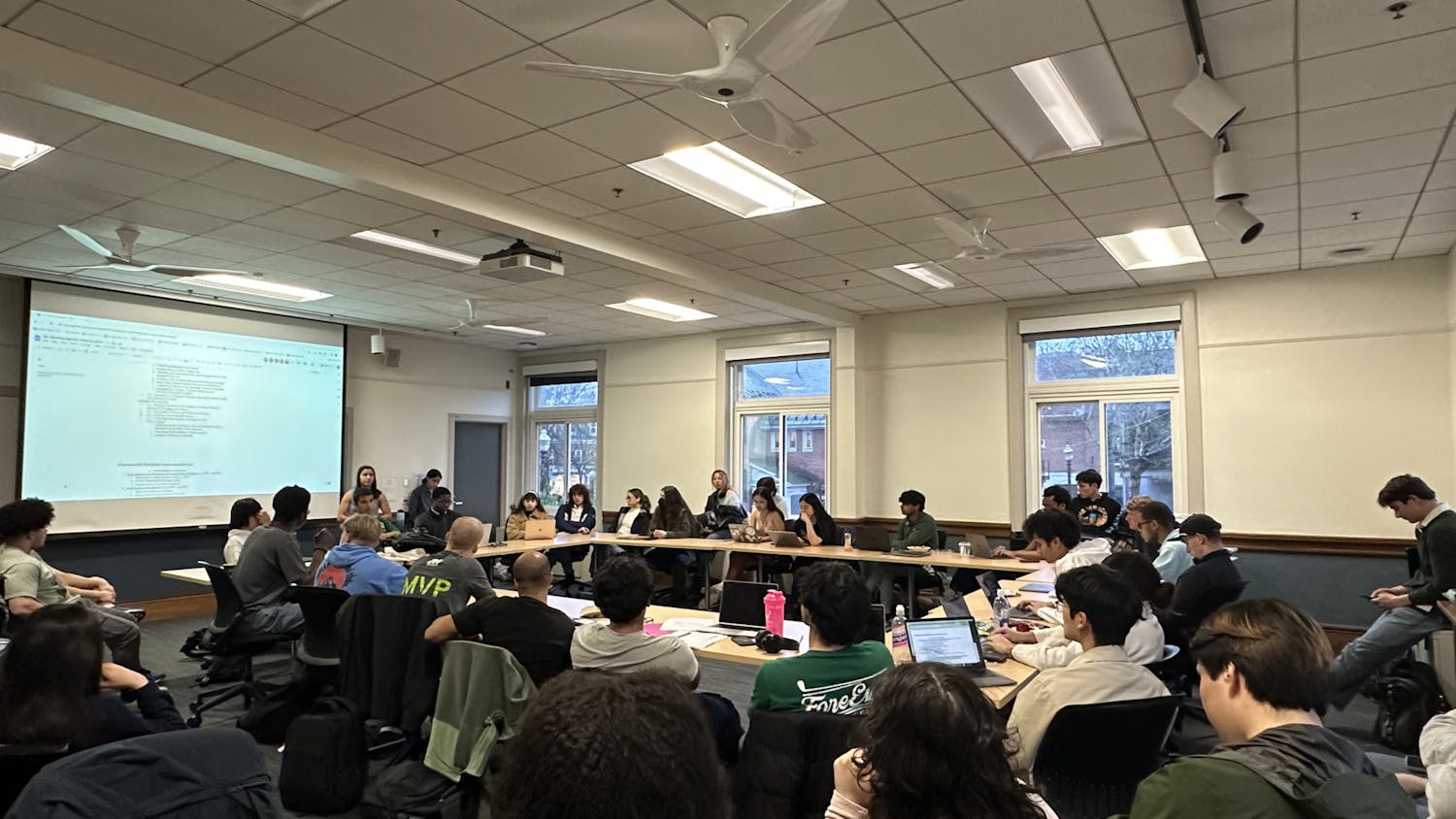With its emphasis on enabling students to pursue their personal academic interests within the framework of a rigorous graduate program, the College's Master of Arts in Liberal Studies program attracts students from a diverse range of backgrounds. The program, founded in 1970, focuses on the importance of interdisciplinary studies and flexibility within graduate education, according to English professor and MALS chair Donald Pease.
MALS is comprised of about 200 active students, including students just beginning the program and those who have completed their coursework and are currently working on theses, according to Wole Ojurongbe, director of the MALS program. Approximately 85 to 110 students are enrolled in classes each term, Ojurongbe said.
Like that of the undergraduate school, the MALS curriculum focuses on liberal arts rather than pre-professional training, which is emphasized in most graduate programs, Pease said. There are four area concentrations within the master's program, but students are also required to complete an independent study, participate in two summer symposiums and write a culminating thesis paper, he said.
"Students can concentrate in cultural studies, which is similar to humanities; globalization studies, which is similar to social science; and soon they'll be able to concentrate in environmental studies, which would replicate the sciences, but in an interdisciplinary approach," Pease said. "In addition, students can concentrate in creative writing and study all kinds of genres: film, performing arts, journalism or playwriting."
Students can also concentrate in liberal studies and take a broad array of courses across the MALS offerings that reflect their personal interests, Pease said.
Johnathan Recor MALS '11 said students' ability to modify the program to meet their own needs initially attracted him to MALS.
"MALS does not follow a generic design," Recor said. "You can create and modify the program to your own needs as an individual. Coming from an undergraduate background as a business major, it was challenging, but I did a lot of performing at the College and was able to combine that with my ability to write."
For his senior thesis, Recor who now works in consulting performed live theater across campus as the "Sun God," he said.
MALS was founded on the belief that interdisciplinary study in the liberal arts marks the most important way to approach higher education, Pease said.
"In MALS, the individual scholar is liberated from mono-disciplinary learning or mono-departmental understanding," Pease said. "The courses are flexible to meet the needs of a range of students, but the rigor in concentration results in a master's degree that the best national PhD programs recognize."
In addition to MALS-specific course offerings as diverse as A Global History of War and Peace and The Art of Travel Writing, MALS students can take any classes offered at the College, including those offered at Dartmouth Medical School, the Thayer School of Engineering and Tuck School of Business, Pease said.
"When students take classes outside MALS, we send the professor specific requirements that MALS students must fulfill," Pease said. "For example, a MALS student in my 19th-Century American Fiction course had to produce a 25-page research paper ... in addition to the regular work expected of undergraduates."
Students in the MALS program can elect to take classes full-time and finish the program in about a year and a half, or can take classes part-time as long as they finish the MALS requirements within six years, he said.
Devin Routh MALS '10 said he has found this latitude invaluable. In addition to taking a course this term, he is working full-time as the supervising manager for the Collis Center.
"This is my last term taking classes in the program, and next term I'll work on my thesis, which is a mixture of social psychology and environmental studies," Routh said. "Completing my masters this way saves me about $20,000."
After completing his thesis, Routh plans to pursue further graduate studies in order to eventually become an interdisciplinary professor focused on sustainability issues, he said.
Michael Hirschfeld MALS '99 said he worked as a teacher at St. Paul's School in Concord while he received his degree and was able to complete his studies over a number of summer terms. He is now the rector at St. Paul's.
"MALS is an incredibly successful program," Hirschfeld said. "From an educator's point of view, there is really a lot that you can do in the summer. You don't have to take a sabbatical. I was not in a rush."
The breadth of the course offerings combined with the program's flexibility attract a wide array of students, according to Ronald Edsforth, a history professor and chair of globalization studies in the MALS program.
"We get a lot of prep school and high school teachers working to expand their credentials as well as some employees of the College who can usually take up to one course a term while working," Edforth said. "We are also getting more young American students that come here straight from college, some of very high caliber, magna cum laude and summa cum laude, probably as a result of the job market."
Older students in the program have often worked for a number of years in a particular field, but now want to expand their education or use MALS as a stepping stone before further graduate and PhD programs.
Other expanding groups in the MALS program include international students and students from military backgrounds, Edsforth said.
"One of the best students that I've ever had in all my many years of teaching was a marine intelligence officer who was just retiring from the military," Edsforth said. "Especially when I teach my class in global war and peace, that kind of a diversity of backgrounds is a vital part of class discussions."
The diversity of students' experiences is often beneficial to courses, which tend to be discussion-based, according to economics professor Evelyn Gick.
"I've had students interested in such a broad range of material," she said. "Students in the same class are interested in fashion and globalization, male liberalism and human trafficking related to women in Romania."
The exchange of valuable experiences is a two-way discourse within the program, as many MALS faculty also share their own professional experiences in discussions, according to professor and former New York Times reporter Christopher Wren.
In a recent class session for his course, The Craft and Culture of Journalism, for example, Wren related the importance of fact-checking and editing in his experience with The Times, where he worked for 28 years.
"I would put a check on all the numbers, and check them again before I handed the article to the copy desk," he said. "It's embarrassing when you mess up and your editor has to issue a correction for a front-page article."
Following their completion of MALS, alumni pursue a variety of paths, Pease said. MALS alumni go on to write novels, receive research grants, seek careers in medicine or return to their previous careers, Pease said.
"I think it's a real jewel of the College and I'm grateful for what it gave me," Hirschfeld said. "I have a lot of young faculty who come and see me, asking how they can grow up professionally, and I steer all of them to Hanover. It's funny, I actually just sent off a colleague's recommendation to MALS today."
MALS accepts applications in two admissions cycles each year, receiving about 60 to 100 applications during each cycle, according to Ojurongbe. MALS admissions officers do not seek to fill a specific number of openings, but instead seek self-motivated applicants who will take advantage of the opportunities offered by the program, he said.
The staff then relays recommendations to Pease and Brian Pogue, dean of graduate studies, who extend acceptances.



